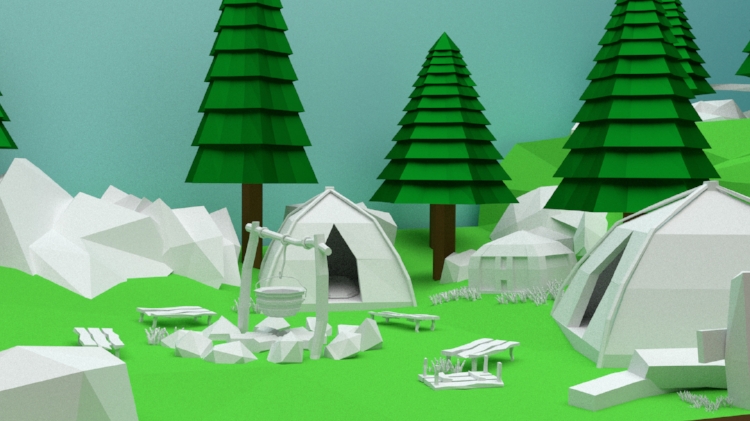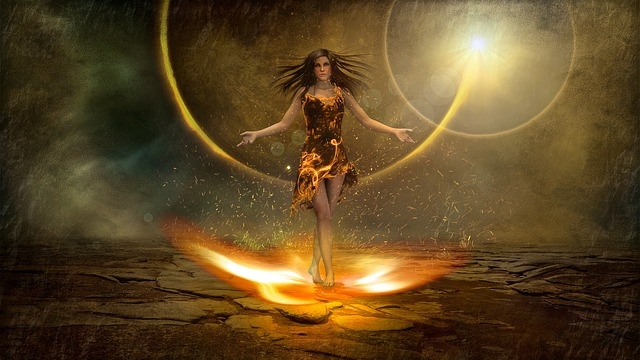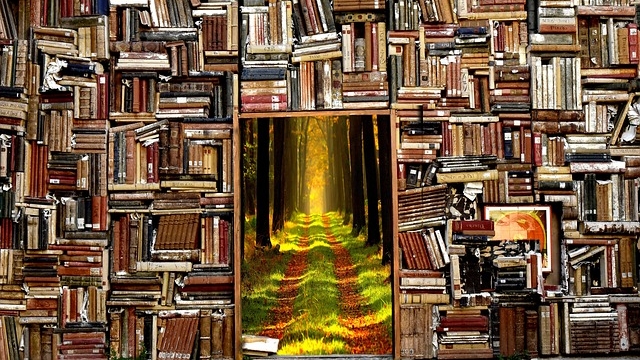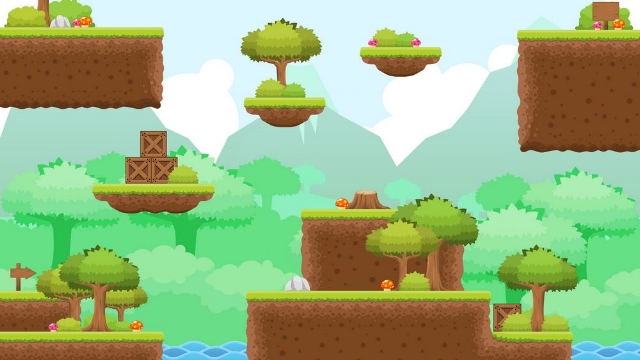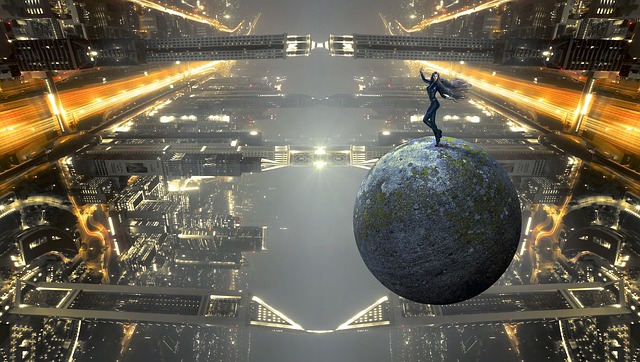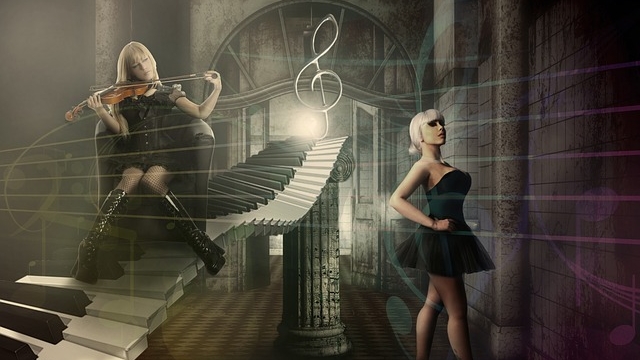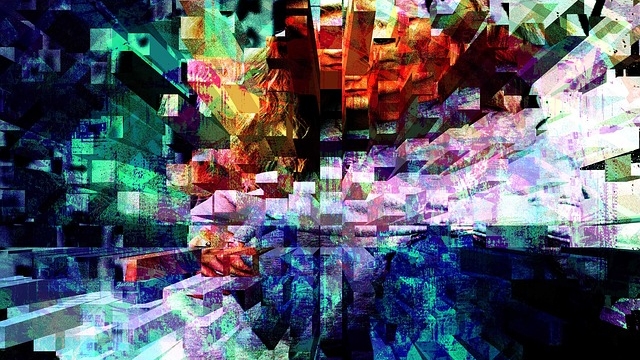Interview by Ninichi | Contact | Follow
Where did the idea for your game from?
'The Hazelnut Bastille project resulted from our long term, independent plans being combined into one production concept: Mark's idea was to create a prototype of a topdown adventure in a 2.5D art style- it would feature 3D models, but with an orthographic top-down camera. I had also had plans for one day working on a topdown adventure- the logic being, it was a format where the assets could be quickly created, thus allowing a much larger proportion of the development time to focus on gameplay design.
We discussed it and decided that it would be more time-conscious to produce a sprite-based game in the 16x16 tile resolution, with the 2.5D concept being a project for later. While Mark had envisioned the project as originally only being a 3-month prototype, it sort of snowballed into being the fully-fledged game we are now targeting.
the gameplay and art style draws heavily from the classic topdown adventures and Rpgs: Legend of zelda, startropics 1 & 2; link to the past; links awakening; secret of mana; chrono trigger.'
So, what's the game about?
'This question sort of breaks down into a story angle, and a gameplay angle. We don't want to go too far in depth story-wise (part of the joy of the game is discovering it yourself in real time!), but we will say that our Heroine is something of a tragic figure, and the player will learn that her actions reflect a deep desperation. She finds herself in a new place, in a new set of circumstances, and she takes up the burdens of a group of people living there, in hope of regaining something she had lost. The story deals with themes of community and social acceptance, as well as the relationship between society and technology.
The gameplay itself will be familiar to many users! We chose the classic archetype of an episodic quest divided between a series of “dungeon” encounters embedded in an overworld. Gameplay will feature real-time exploration and combat. Play will revolve around intense combat sequences, and puzzles involving sequential thinking and item-use.
In particular, I was always a fan of the sort of the “clockwork” combat of the original Legend of Zelda; in that game, almost everything moves by 4-way cardinal directions, and the enemies all follow predictable patterns. There is very little safe space for the player to occupy, and they are constantly making discrete choices about how to maneuver to the safe pockets on the screen, or which of their items to use to manage the enemies of the room. That concept of combat always fascinated me, and it seems like it hasn't been revisited much in other titles, so it became the most direct influence for how we approached our own design!'
Who's been involved in its development?
'Just we two developers so far!
Mark Harbaugh is focused on the programming structures and gameplay scripting, as well as some of the gameplay design.
Dennis Varvaro is focused on art production and foley sound, gameplay mechanics and level design, and community interaction.
Soon, we will be joined by a dedicated composer, but we don't want to make any announcements there until it is finalised!'
How did you get involved in making games?
Mark: 'Ever since I was a kid I have had an interest in computer software and creating things. I was an avid reader and wanted to tell my own stories. I grew up in the 90s along with the rise of the Nintendo console. While I enjoy games like anyone else, it was always the narrative that kept me going. Games such as Chrono Trigger and Final Fantasy 6 sparked my desire to tell a story in game form. It was during my high school years that I decided on a career in computer science. Shortly after high school graduation I began studying game development and design along with my general college education. Game development was a way to combine my various interests in creating, design, programming, and storytelling. Over the years I have worked on a number of small projects to sharpen my skills. I have been programming for over 13 years and studying game development for 8 years.'
Dennis: 'I have been involved in art and design for about 15 years now. I studied classical architecture at university, and have practiced as an architect ever since. With this basis, moving into other areas of design was sort of an organic extension. Part of what draws me to architecture is the idea that you have the opportunity to create a controlled experience for the occupant; how they experience your spaces and forms has a direct emotional impact, much like music does! The real world of architecture, however, is a very slow process of design, generally implemented in very narrow contexts and scales. One reason I grew interested in game design was the opportunity to practice crafting this user experience on very rapid terms, with far fewer constraints. I spent many years practicing prototyping in both 3D and 2D settings, and eventually some of these prototypes developed into viable games projects that could be realized in realistic time-frames with very small teams.
I've also been a long-term student of design. I enjoy understanding what factors impact user experience, and studying the different techniques that the greats of our field have employed to craft coherent sequences of gameplay over their entire arcs. When it all comes together, you get an experience where the user is presented with problems, is gently taught the means for overcoming them over time, and in the process has an experience where they are drawn into the gameworld and its story on a deeply engaged level. I think Mark and I are both highly invested in learning from this great tradition and continuing it!'
What are your plans to market the game?
'Our first major trailer is scheduled to be released in January 2017; after that point, we will likely Steam Greenlight the project. It will also be the major milestone where we will open a dialogue with gamespress outlets, and offer our material for features. Sites such as PCGamesN and RockPaperShotgun have graciously featured our other development projects in the past, so we will probably use similar techniques for featuring the work this time around. We will of course continue to maintain media about the work on TIGsource, Twitter, and IndieDB. A useful service for publishing press releases at milestones has been bluesnews, so we will probably continue to post with them in the future. A gameplay demo is also expected around this time, so that will also be a possible avenue to get some exposure for the title as well, via youtube features. It is possible that there may be a crowd sourcing campaign to follow!'
What are your plans for the music?
'Our game has a pretty clear relationship with the art and design sensibilities of the SNES era of design. We think it makes total sense to reflect this same fidelity in our music design.
The SNES sound chip was produced by Sony, and was more or less the same architecture as the one they featured in their original Playstation, so our sound will be similar to what players may remember from these two consoles. This chip is capable of 8-voice polyphony (8 notes can be sounded at once, from one instrument, or 8 different instruments). This is a pretty expansive number, especially compared with the 2-3 the various NES carts were capable of. It accounts for the fuller, more orchestral sound those systems had vs the more “chiptuney” sound of the NES. The chip does both oscillator synthesis, and sample-based voices. The soundfont which it plays samples from is quite small, usually smaller than a megabyte, so the samples are quite spare, similar to what many people think of as Midi samples today.
For a preview of what sort of composition style we are aiming at, you might check out the OST's for The Secret of Mana, and Chrono Trigger; these two titles sort of represent a highwater mark of musicality on the SNES, and the potential of what its approach to music can achieve. '
For you, how important is music in games generally? Do you think people use it to its full potential?
'The role of music in games varies very much across genres. In some, it is intended to be very much unobtrusive, and exists merely to set a certain standard of tension, or as a sort of stock “flavor” element which is matched to the art character of the rest of the production.
Music has a very intimate relationship with emotions. The intervals of the western musical scale have different amounts of mathematical tension between them, and our brains over time learned to associate these intervals with different emotional content in human speech patterns. When used to its full potential, music thus becomes a system for inducing these same emotions in an empathetic listener. This is an incredibly powerful tool, and clearly among the most critical of all that the designer has access to.
Study of media has shown that emotional connection takes a long time to develop in viewers, and thus critical scenes tend to be slow and drawn out in dramas.
The games which are using music to its fullest potential today are thus generally the long-form formats like the modern RPG, with long drawn out story-telling, because these situations allow the user to have maximum engagement with the soundtrack, and thus also allow the designer to bring the music sharply into the foreground of the experience.
Squaresoft and Capcom were known for prioritizing music design in a way that elevated the rest of their art as a result. The work of these two studios immediately invokes memories of their compelling soundtracks, maybe even above all else!'
Where can we find more about you and the game?
'For now, we are keeping a narrow media profile. We post regular updates about our development and content on our running TIGsource development log. You can also follow us on twitter.
In the coming months, we will feature the project on our dedicated website alongside our other work, where we will also
Keep you abreast of media published about the title!'
This interview has been brought to you by game music composer Ninichi.
Are you looking for music for your game or project? Contact me now to discuss your game music needs. listen to some of my game music here & learn more about Ninichi.
If you have a game or film that you'd like featured on Ninichi's music blog, feel free to contact me and tell me about your game or film.
Follow me @ninichimusic









